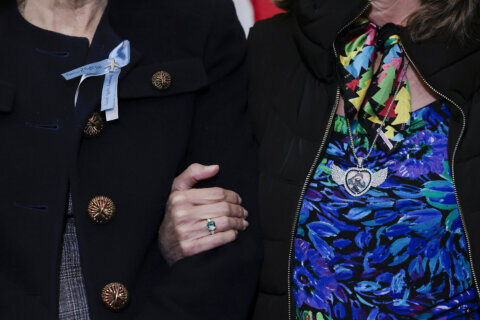WASHINGTON — The agency directly responsible for ensuring Metro follows through with safety plans could do more to ensure that happens, according to an audit released this week by the Federal Transit Administration.
Among other things, the Tri-State Oversight Committee is responsible for ensuring that Metrorail follows approved schedules for corrective actions and for ensuring that Metrorail adheres to safety programs and properly reports and investigates accidents or incidents. However, the committee has no real regulatory or enforcement power beyond memorandums of understanding that allow it to operate.
The FTA audit finds many accident investigations or corrective action plans go unreviewed for months or years, in part due to the small number of full-time staffers
The audit found that the Tri-State Oversight Committee had 87 open accident investigations, some which date back to 2013.
Obtaining approvals from all three jurisdictions — Maryland, D.C. and Virginia — before findings and evaluations can be issued has also contributed to the backlog, according to the audit.
Findings and evaluations are delayed in part because all three jurisdictions — Maryland, D.C. and Virginia — must approve them before they can be issued.
The FTA says in the audit that Maryland, Virginia and D.C. must prioritize reforms for the committee, which is supposed to be transitioned into a new body called the Metro Safety Commission. The FTA told Maryland, Virginia and the District in the fall of 2013, three years after the change was proposed, that the transition is required under federal rules because the committee does not have actual independent regulatory or enforcement power.
The transition to the new agency, which will get its funding through the Metropolitan Washington Council of Governments, must be completed in order to receive $4.5 million in federal grants dating back to fiscal year 2013.
“Given the complexity of this undertaking, and the number of activities to be performed, FTA finds that the local jurisdictions have not committed to the creation of the (Metro Safety Commission) with the sense of urgency warranted by both 1) WMATA’s safety performance and challenges, and 2) the potentially devastating financial impact that failure to stand up this agency as required … could have on WMATA,” the audit says.
The agency says it will work directly “with the Governors of Virginia and Maryland and the Mayor of the District of Columbia regarding recovery plans for failure to meet deadlines.”
The audit does find that some oversight from the committee, including reviews of major projects like the Silver Line, actually exceed some federal requirements. However the FTA says the limitations on the committee come up short of the higher expectations under the new rules for what are known as state safety oversight agencies.
The audit also suggests that Metro is slow to submit fixes for identified problems, and sometimes solutions to issues raised by the oversight committee are not addressed with formal responses at all. The FTA suggests a checklist of what is expected from Metro in accident or hazardous situations could make reporting easier.
The audit was released the same day as an FTA safety inspection of Metro that detailed 44 findings that must be addressed within the rail system and 10 findings related to Metrobus safety. Those findings include major safety problems within Metro’s Rail Operations Control Center — where workers serve as air traffic controllers to ensure the safe passage for trains.
Metro has until September to come up with plans to fix those safety deficiencies.
The FTA will approve those plans, but the Tri-State Oversight Committee, or some later replacement safety commission, would take the lead role in checking on whether Metro follows through with those plans.
In the meantime, the committee will now meet with the FTA every three months, beginning in July, to follow up on oversight issues. And the committee has 60 days to outline its plans to resolve the 11 findings in the FTA audit.
NTSB hearings next week
On Friday, the National Transportation Safety Board released the final agenda for investigative hearings into the deadly January smoke incident near L’Enfant Plaza that triggered the FTA’s safety management inspection of Metro.
The NTSB is the only agency directly investigating the incident, which it has said was caused by electrical arcing and exacerbated by ventilation systems that did not work properly.
The final agenda shows witnesses Tuesday and Wednesday will include Metro track and infrastructure leaders, those responsible for District of Columbia 911 and radio communications, and fire rescue officials from the District and Montgomery County.
Metro’s rail leaders and police chief will also testify alongside a transit union safety leader, followed by a final group of witnesses examining the oversight issues that are detailed in the FTA’s audit of the oversight committee.
The NTSB will also ask the leader of the New York area’s Metro-North railroad how it has learned from a series of deadly crashes.







